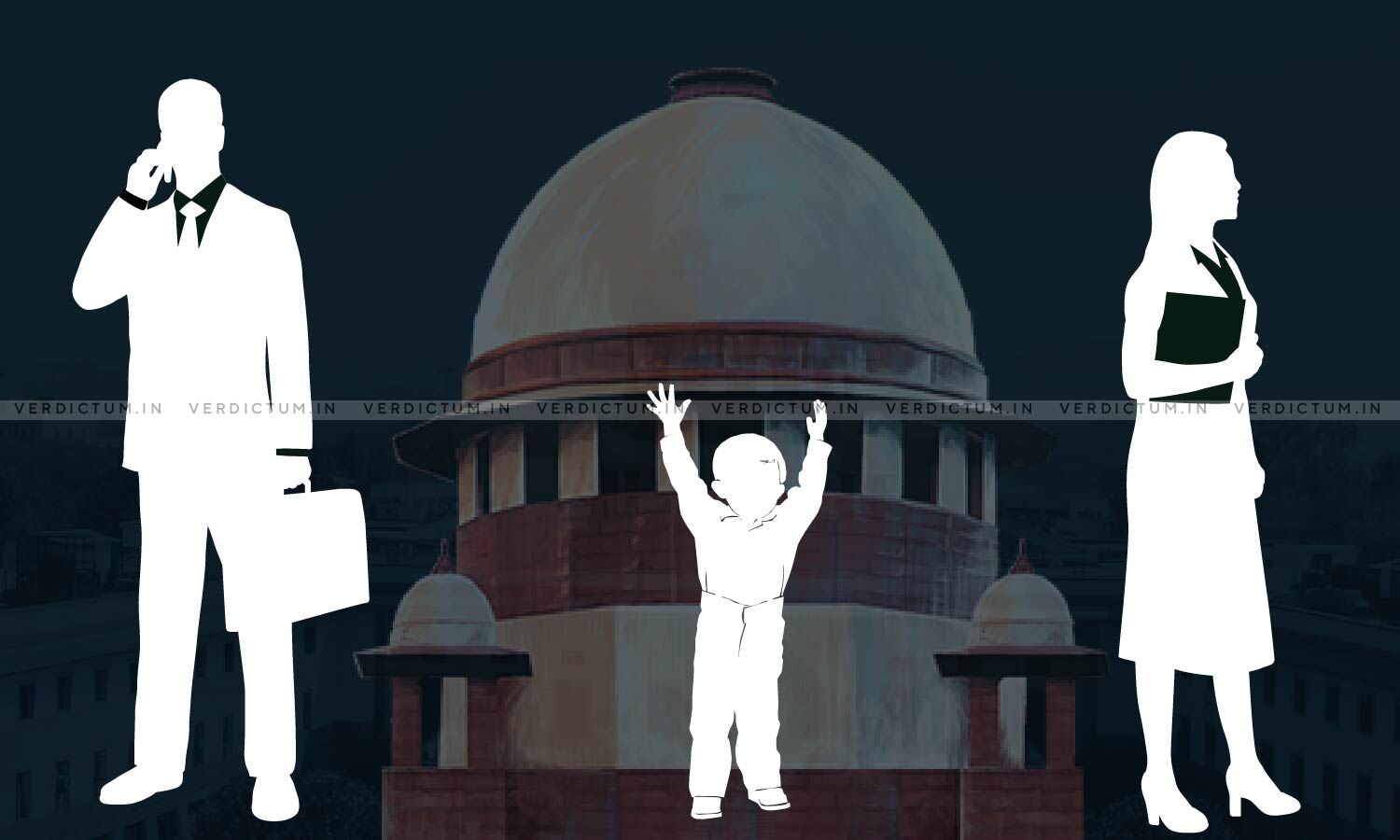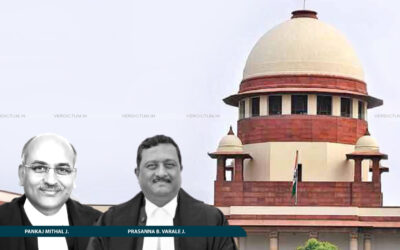Supreme Court Grants Permanent Custody To Mother Who Got Remarried

The Supreme Court has granted permanent custody of a child to the mother who got remarried to another man, saying that it would be extremely harsh to expect the child to flourish in an alien household where his own biological father is akin to a stranger to him.
Review Petitions were preferred by the mother before the Court, assailing the common final Judgment of the Kerala High Court.
The two-Judge Bench of Justice Vikram Nath and Justice prasanna b. varale remarked, “The stability and security of the child is an essential ingredient for the full development of the child’s talent and personality. Even most of the well grown adults do not perceive sudden and huge changes in their lives very comfortably and often exhibit symptoms of distress when confronted with such an imminent change to their regular life. It would be extremely harsh and insensitive for the courts of law to expect the child to accept and flourish in an alien household where his own biological father is akin to a stranger to him.”
The Bench added that it cannot turn a blind eye to the trauma that is being inflicted on the child in consequences of the Orders of the Courts of law handing custody to the father, who is alleged to exhibit apathy towards the tender emotional state of the minor.
Senior Advocate Liz Mathew appeared for the Review Petitioner while Senior Advocate Kiran Suri appeared for the Respondent.
Brief Facts
The marriage between the Review Petitioner-wife and the Respondent-husband was solemnized in 2011 in accordance with Hindu rites and rituals and a boy was born out of the wedlock in 2012. However, differences arose between the parties soon and hence, they started living separately from 2013 onwards and eventually decided to dissolve the marriage by mutual consent. Accordingly, an agreement was executed as per which the custody of the minor child was agreed to remain with the mother. The husband/father was granted visitation rights on two Saturdays in a month. A joint Divorce Petition was filed by the parties, which was allowed by the Family Court. Thereafter, the wife/mother got remarried with another man in 2016 and the said man had two children from his earlier marriage who had attained the majority age. Subsequently, one more child was born to the Petitioner and that man out of the wedlock. The Respondent remained unaware about the whereabouts of the Petitioner and his minor son for the period between 2016-19 and could not find her residential address despite his best efforts.
It was only in October 2019 when the Petitioner contacted the Respondent in order to get his signatures on certain affidavits to obtain relevant documents for the minor son’s international travel, that the Respondent became aware about the factum of her remarriage and her intentions to relocate the minor son to Malaysia. As per the Respondent, upon inquiry, he also became aware that the child’s religion was changed from Hindu to Christian by the Petitioner. Hence, the Respondent filed a Petition before the Family Court, seeking permanent custody of the minor child. The Trial Court rejected the Respondent’s prayer. Therefore, he approached the High Court, which granted him permanent custody of the child while granting visitation rights to the Petitioner. Being aggrieved by this, the Petitioner filed the SLPs (Special Leave Petitions), in which an Interim Order was passed. The said SLP were converted to Civil Appeals, which were eventually dismissed by the Apex Court. Resultantly, the Petitioner filed Review Petitions.
Reasoning
The Supreme Court in the above regard, observed, “… custody orders are always considered interlocutory orders and by the nature of such proceedings, custody orders cannot be made rigid and final. Rather, the Courts are entitled to alter and mould the custody orders in view of the best interest of the minor.”
The Court emphasised that the core and inalienable standard is the paramount consideration of the child’s welfare, which is affected by an array of factors, is ever evolving and cannot be confined in a straitjacket; therefore, each case has to be dealt with on the basis of its unique facts and take into account any change in circumstances which have an impact on the quality of a child’s upbringing.
“In light of the aforesaid legal principles surrounding review jurisdiction of this Court and the role of Courts in custody matters, it is a natural corollary that judicial discretion has to be properly balanced between the statutory provisions that advocate for limited exercise of review powers and the peculiar care that needs to be extended by the Courts in matters of child custody. We sincerely believe that undertaking a far too hyper technical approach in such cases shall indeed amount to abandoning the doctrine of parens patriae and will cause travesty of justice”it noted.
The Court said that in this case, permanent custody of the minor child should remain with the Petitioner-mother, however, the Respondent-father’s intention and efforts to become actively involved in his child’s life cannot be ignored and he needs to be given a material opportunity to develop a connection with his minor son.
“It shall be done in the form of granting him visitation rights, and such visitation rights will provide the child with a space to start being at ease in his father’s presence at a comfortable pace, as opposed to an immediate transition in custody. This approach is intended to ensure the welfare of the child and assist him in forming a child parent bond with both his parents”it added.
Conclusion
The Court, therefore, issued certain directions governing the custody and visitation rights of both the parties with regard to the minor child.
“Before parting with the judgment, we find it relevant to remind both the parents of their primary responsibility towards child’s nurturing, which can be achieved by effective communication and smooth execution of the above arrangement, while exhibiting mutual respect. The parties are advised not to let their bitter past experience impede the child’s well being, especially given the sensitive emotional state of the tender child. The petitioner is advised to encourage the child to accept and welcome both the parents in his life for a well-rounded development”it further remarked.
The Court was of the view that the Respondent cannot immediately expect the child to develop a parental bond with him abruptly after such a long absence because a father son relation can only be fostered patiently over the course of years, marked by his continued presence and responsibility-bearing attitude, and nurtured with boundless love, care and empathy.
Accordingly, the Apex Court allowed the Review Petitions and granted permanent custody to the mother.
Cause Title- ABC v. XYZ (Neutral Citation: 2025 INSC 853)

